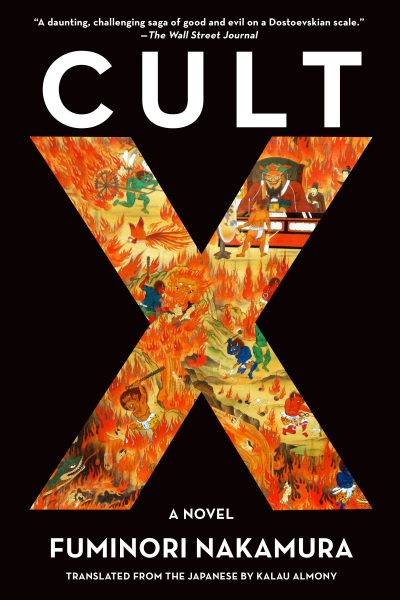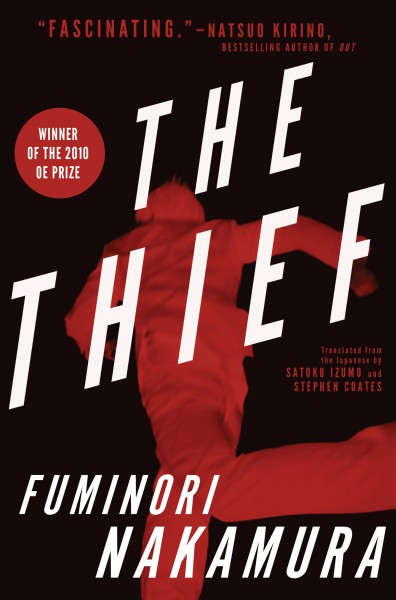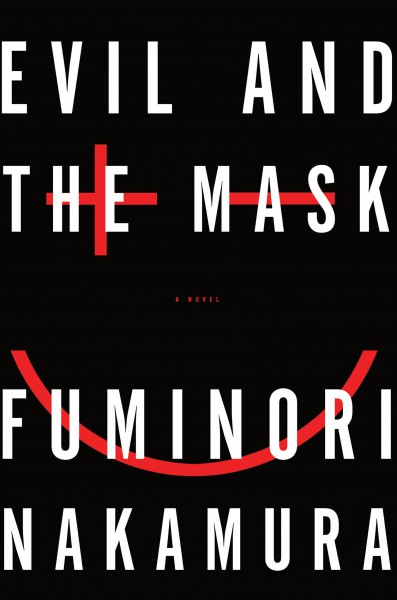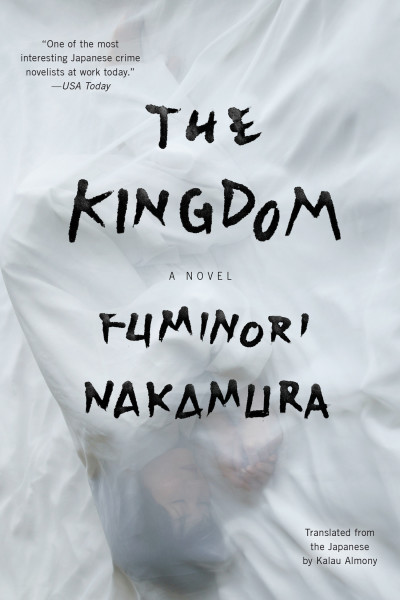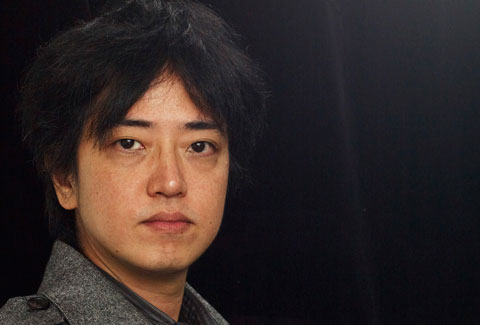Pricing
Paperback $17.95
Description
The magnum opus by Japanese literary sensation Fuminori Nakamura, Cult X is a story that dives into the psychology of fringe religion, obsession, and social disaffection.
When Toru Narazaki’s girlfriend, Ryoko Tachibana, disappears, he tries to track her down, despite the warnings of the private detective he...
The magnum opus by Japanese literary sensation Fuminori Nakamura, Cult X is a story that dives into the psychology of fringe religion, obsession, and social disaffection.
When Toru Narazaki’s girlfriend, Ryoko Tachibana, disappears, he tries to track her down, despite the warnings of the private detective he’s hired to find her. Ryoko’s past is shrouded in mystery, but the one concrete clue to her whereabouts is a previous address in the heart of Tokyo. She lived in a compound with a group that seems to be a cult led by a charismatic guru with a revisionist Buddhist scheme of life, death, and society. Narazaki plunges into the secretive world of the cult, ready to expose himself to any of the guru’s brainwashing tactics if it means he can learn the truth about Ryoko. But the cult isn’t what he expected, and he has no idea of the bubbling violence he is stepping into.
Inspired by the 1995 sarin gas terrorist attack on the Tokyo subway, Cult X is an exploration of what draws individuals into extremism. It is a tour de force that captures the connections between astrophysics, neuroscience, and religion; an invective against predatory corporate consumerism and exploitative geopolitics; and a love story about compassion in the face of nihilism.
Media
“Raises the literary stakes to literally cosmic proportions ... Cult X, translated into handsome, unadorned English by Kalau Almony, pushes the boundaries of the thriller genre to an extreme degree. Mr. Nakamura has written a daunting, challenging saga of good and evil on a Dostoevskian scale. Those who persevere to its finale may well feel the richer for it.”
–Tom Nolan, The Wall Street Journal
“Crime fiction that pushes past the bounds of genre, occupying its own nightmare realm . . . Guilt or innocence is not the issue; we are corrupted, complicit, just by living in society.”
—Los Angeles Times on Cult X
“A suspenseful study of obsession . . . Love, even illicit love, has a way of bringing out the best or the worst in a person.”
—The New York Times
“Not exactly an easy read, this dense, multi-layered novel by one of the kingpins of Japanese noir requires close attention — and an interest in religious cults, astrophysics and neuroscience would help. At its heart it's an investigation — first for a lost woman, but ultimately into humanity's darkest motivations and the temptation to follow them.”
–The Sunday Times
“Taking as his inspiration the 1995 sarin gas attack on the Tokyo subway, award-winning author Nakamura weaves together politics, religion, and science—including biology, cosmology, and quantum physics—into a fascinating noir brimming with insightful commentary on totalitarianism that is especially apt for our times.”
–Booklist, Starred Review
“The sprawling novel, told from multiple perspectives and with long forays into the science of the universe, is an epic endeavor that deserves to stand next to the works of Ellroy and Bolaño in the canon of lengthy crime fiction.”
–CrimeReads
“[Cult X] twists adeptly toward a horror-laden plot of mass destruction.... Horrifying, yes – but worth confronting.”
–Kingdom Books
“You'll think about Nakamura's questions long after you've closed his book's covers. He uses the conventions of a genre to prop up a tent for big ideas about groupthink and individual responsibility. If you feel a few frissons along the way? Consider how easily you might be seduced into a cult, and then take a long, cold shower.”
–NPR
“Cult X was inspired by Aum Shinrikyo, the group responsible for the 1995 sarin attack in the Tokyo subway, but that is just a starting point, for Nakamura weaves in themes of personal commitment, politics, religion and much more. It’s not, however, for the faint of heart.”
BookPage
“Nakamura's impassioned writing is part of a continuum that stretches from Dostoevsky to Camus to Oe.”
